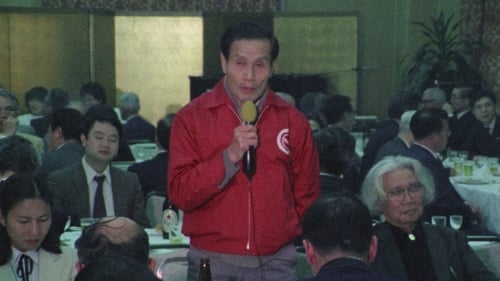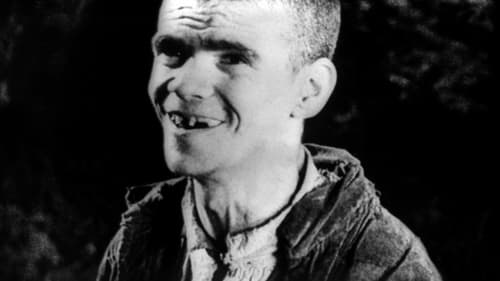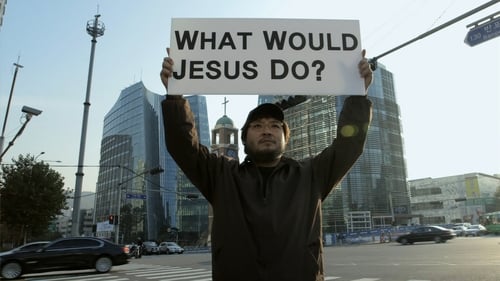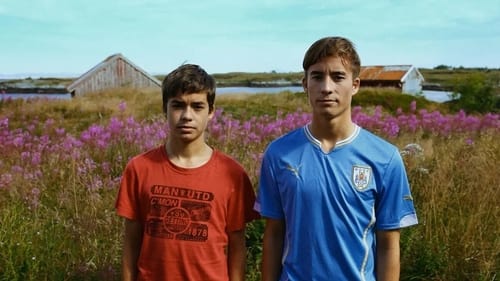Mazagão: Porta do Mar (2017)
Жанр : документальный
Время выполнения : 0М
Директор : Gavin Andrews
Писатель : Gavin Andrews
Краткое содержание

A portrait of the hacking community. In an effort to challenge preconceived notions and media-driven stereotypes Hackers Are People Too lets hackers speak for themselves and introduce their community to the public.

A documentary on the expletive's origin, why it offends some people so deeply, and what can be gained from its use.

Независимый полнометражный документальный фильм режиссёра Гари Хаствита, в котором рассказывается о наших сложных отношениях с объектами массового производства и, как следствие, с людьми, их спроектировавшими. Этот фильм — взгляд на творческую составляющую проектирования вещей: от зубных щеток до электронных устройств.
«Овеществление» является вторым фильмом «дизайн-трилогии» Гари Хаствита.

Journalist Fabian Burstein looks behind the curtains of the porn industry. Starting in Budapest he heads westwards to explore a new world on its victory march rooted deeply in Austria. On this journey he meets the heroes and leading actors of this story: Austrians Mick Blue, Renee Pornero and Thomas Janisch. Porno Unplugged follows its native porn stars to where their lives happen. From east to west...

Кендзо Окудзаки имеет три судимости, из которых одну он получил за убийство, а две других за оскорбительные действия в отношении императора. Для японского общества Кендзо экстремист. Однако, не всё так просто. Окудзаки ветеран и на протяжении долгого времени он пытается добиться справедливости в отношении двух солдат Японской армии, которых казнили офицеры, хотя формально война была завершена вот уже несколько дней. Именно этому расследованию и посвящён фильм радикального японского документалиста Кацуо Хара. На протяжении всего фильма, Окудзаки ходит от одного своего бывшего сослуживца к другому и пытается узнать, что же на самом деле произошло в тот роковой 1945 год. И постепенно Окудзаки узнаёт такую правду, от которой стынет кровь в жилах.

An exploration —manipulated and staged— of life in Las Hurdes, in the province of Cáceres, in Extremadura, Spain, as it was in 1932. Insalubrity, misery and lack of opportunities provoke the emigration of young people and the solitude of those who remain in the desolation of one of the poorest and least developed Spanish regions at that time. (Silent short, voiced in 1937 and 1996.)
![Montevideo Today [unpublished fragments]](/assets/images/no-backdrop.png)
Documentary about the political and social reality of Uruguay during the period of 1968-1970. This short is incomplete and composed of a series of fragments. The complete film was taken by the military dictatorship in Uruguay (1973-1985) and is now lost.

Filmed on the 60th anniversary of the republic, this dark-humor documentary delves on the highs and lows of living in North Korea.

The life of a female weaver is thrown onto the socio-political canvas of pre-war and post-war communist Poland through the use of expressive allegorical and symbolic imagery in this imaginative take on the documentary form.

An American journalist, a British sake brewer and the president of a centenary Japanese sake brewery join together to explore the mysterious world of sake, a generic name for Japanese rice wine, actually a sort of liquor. These unique individuals, fascinated by this extraordinary beverage, investigate the spectacular world that has grown around it thorough ages.

The second part of the documentary "Después de...", "Atado y bien atado" presents the sensitivity that existed in different areas of Spanish society in its young democracy concerning its future, where the fear of a sector was underlying ultra-conservative before the construction of a different country and that already announced the attempted coup d'état of February 1981. Without a doubt, this work —which could not be released until 1983— places Cecilia Bartolomé and her brother as precursors of the social documentary that will have an enormous development and that today continues to be crucial in Spanish film production.

Black Mold Exposure explores the bizarre illnesses associated with exposure to toxic mold and the film participants' difficult task of regaining their health and lives in an atmosphere of political and social intolerance and disbelief. Black Mold Exposure is a first-ever look into the lives of those claiming to be ill from mold and the controversial and volatile climate surrounding it.

Meet the Mormons examines the very diverse lives of six devout Mormons. Filmed on location and across the globe, Meet the Mormons takes viewers on a journey into the day-to-day realities of individuals living in the U.S., Costa Rica, Nepal and beyond. From their individual passions to their daily struggles, each story paints a picture as rich and unique as the next while challenging the stereotypes that surround the Mormon faith.

The church is the body of Christ. In Greece, the church embodied a philosophy. Then in Rome, it became an institution. Spreading throughout Europe, it became one with the culture there. Traveling to the US, the church became a business. And when it arrived in Korea, it became a conglomerate. The top five largest churches in the world are located in Korea. However, Christ has long been absent in the nation. So then, what is the church? Who is Jesus Christ? What kind of world do Christians want? If the church is indeed the body of Christ, then we must ask the questions point-blank. Where do we stand in all this? And where exactly are we headed? Korean churches—“Quo Vadis?” Korean society—“Quo Vadis?”

A film about the close relationship between two brothers. Markus (10) and Lukas (7) live in an old, yellow townhouse in the middle of Oslo. The river runs close to their home. A paradise in the heart of a big city. Here the brothers grow up with their dreams and longings for the future.

A small group of filmmakers, led by the Bartolomé brothers, took to the streets at the beginning of the Transition to gather the opinions of politicians and citizens about the country that was about to be formed. Today, this documentary work is a true milestone that defines the history of cinema in Spain, since all its testimonies allow us to understand the plurality of a young society that meditated on how to think about its past and build its future.

Edward R. Murrow narrates Humphrey Jennings' short documentary about life in England during wartime.

Morgan Spurlock, Joe Morley and Heather Winters -- the same group of filmmakers that exposed the greasy truth about fast-food "supersizing" -- team with director Sara Sackner for this eye-opening documentary that looks under the hood of America's public school curriculum. Under the microscope this time is arts education and its pitiable lack of funding, as well as the vital role a teacher can play in the lives of struggling students.

For four years (1977-1981) Esaias Baitel documented a violent Parisian neo-Nazi gang. Having gained their trust, he was able to get close to them. Living among the gang members, he witnessed horrific events, and while hiding his real identity, he photographed a one-of-a-kind collection of gripping stills. Over thirty years have passed. Esaias Baitel has laid his camera down. He returns to the dark nights he spent in the City of Lights, the city where he lived a double life, going back and forth from the gang to the young family he had just started.

In the 1920s, former coal miner Harry Hoxsey claimed to have an herbal cure for cancer. Although scoffed at and ultimately banned by the medical establishment, by the 1950s, Hoxsey's formula had been used to treat thousands of patients, who testified to its efficacy. Was Hoxsey's recipe the work of a snake-oil charlatan or a legitimate treatment? Ken Ausubel directs this keen look into the forces that shape the policies of organized medicine.






![Montevideo Today [unpublished fragments]](/assets/images/no-backdrop.png)












